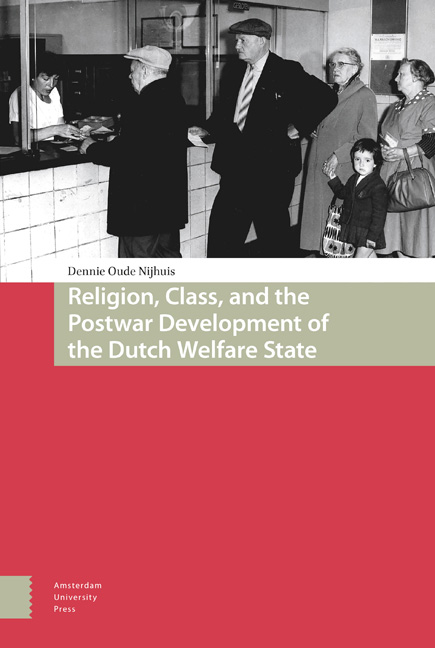Summary
As a result of its peculiar welfare trajectory, the political and organizational weakness of forces that are traditionally viewed as the major proponents of the welfare state, and its ability to combine generous levels of social provision with high levels of employment, the Netherlands has long attracted much attention from welfare state scholars. At the same time, however, we still lack a comprehensive account of the Dutch welfare state's postwar trajectory – let alone one that is accessible to an English-language audience. This book aims to offer such an analysis. As is the case with most scholarly accounts, it has both empirical and theoretical goals. Its empirical goals are twofold. The first is to provide a thorough analysis of the preferences of the main welfare actors in the Netherlands – Christian-democratic, social-democratic and liberal parties as well as the main union and employer federations – and the role they have played in the process of postwar Dutch welfare reform. The second is to explain the main features of the postwar trajectory of the Dutch welfare state, which include its slow development under leftist governments in the immediate postwar period, its rapid transformation into unmatched levels of generosity under mostly right-wing governments in following years, and its subsequent transformation into a more active but still comparatively generous system of social protection.
The book's primary theoretical goal is to provide a critical analysis of some of the central claims of the welfare state literature, in particular those that relate to the impact of Christian democracy and the labor union movement on welfare state development. These claims, and my criticism of them, will be outlined at length in the chapters below. For here, it is sufficient to point out that the willingness of Christian-democratic parties and (various types of) labor unions in the Netherlands to accept and push for welfare initiatives that massively redistributed resources from the middle-class and other affluent groups towards low income and otherwise vulnerable economic groups has been remarkable, and that this warrants a fundamental reconsideration of the role of Christian democracy and the labor union movement in the postwar development of European welfare states. To illustrate this, the book will make numerous references to the situation in countries other than the Netherlands.
- Type
- Chapter
- Information
- Publisher: Amsterdam University PressPrint publication year: 2018



